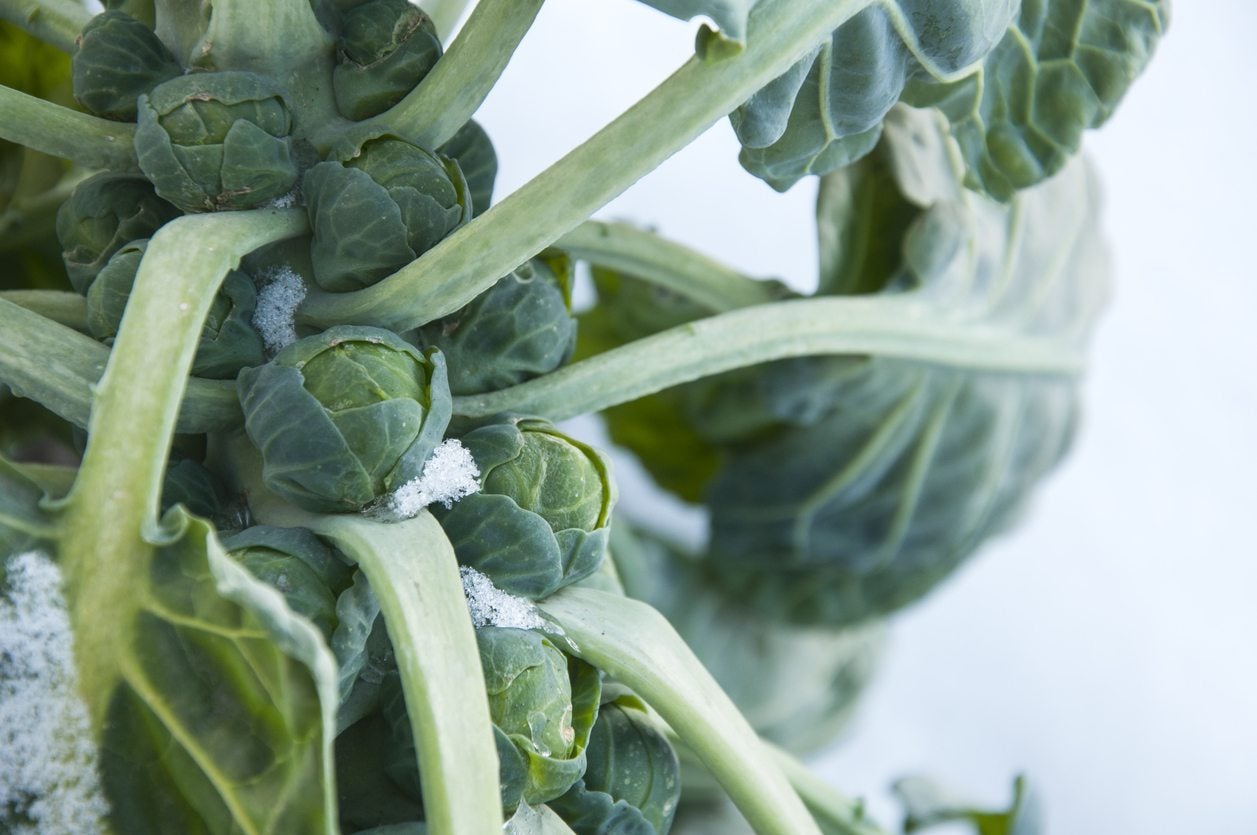Growing Vegetables In Winter: Learn About Zone 9 Winter Vegetables

I’m quite envious of folks who reside in the warmer regions of the United States. You get not one, but two chances to reap crops, especially those in USDA zone 9. This region is perfectly suited to not only a spring sown garden for summer crops but also a winter vegetable garden in zone 9. Temperatures are mild enough for growing vegetables in winter in this zone. Curious how to get started? Read on to find out about zone 9 vegetables for winter gardening.
Growing a Winter Vegetable Garden in Zone 9
Before choosing your zone 9 winter vegetables, you need to select a garden site and prepare it. Choose a site that has at least eight hours of direct sunlight each day with well-draining soil. If you are using an existing garden, remove all old plant detritus and weeds. If you are using a new garden site, remove all grass and till the area down to a depth of 10 to 12 inches (25-31 cm.). Once the area has been tilled, spread 1 to 2 inches (2.5-5 cm.) of course, washed sand, and 2 to 3 inches (5-8 cm.) of organic matter onto the garden surface and till it into the soil. Next, add fertilizer to the bed. This can come in the form of compost. Be sure the bed has adequate phosphorus and potassium as well as nitrogen added to it. Mix the fertilizer in well and water the beds. Allow them to dry out for a couple of days and you are ready to plant.
Zone 9 Vegetables for Winter Harvest
Fall crops do much better when started from transplants than from seed, and transplants should always be used for tomatoes and peppers. Buy the largest transplants available. Or you can start your own plants earlier in the season and transplant them. Plant shade tolerant crops between taller veggies like tomatoes. Fall planted vegetable crops are categorized as either long-term or short-term crops, depending upon the cold tolerance of the crop and the date of the first killing frost. When growing vegetables in winter, be sure to group plants together according to their frost tolerance. Zone 9 vegetables for the winter garden that are frost tolerant include:
- Beets
- Broccoli
- Brussels sprouts
- Cabbage
- Carrots
- Cauliflower
- Chard
- Collards
- Garlic
- Kale
- Lettuce
- Mustard
- Onion
- Parsley
- Spinach
- Turnip
Group the short-term veggies together so they can be removed after being killed by frost. These include plants like:
Water the garden deeply, once a week (depending on weather conditions) with an inch (2.5 cm.) of water. Monitor the garden for pests. Row covers or plastic can be used to protect the plants from pests, although they’re usually not as rampant during this time. Covering can also protect plants from wind and colder temperatures. Be sure to select only cultivars that are suited to your area. Your local extension office will be able to direct you to the right plants for your area.
Gardening tips, videos, info and more delivered right to your inbox!
Sign up for the Gardening Know How newsletter today and receive a free copy of our e-book "How to Grow Delicious Tomatoes".

Amy Grant has been gardening for 30 years and writing for 15. A professional chef and caterer, Amy's area of expertise is culinary gardening.